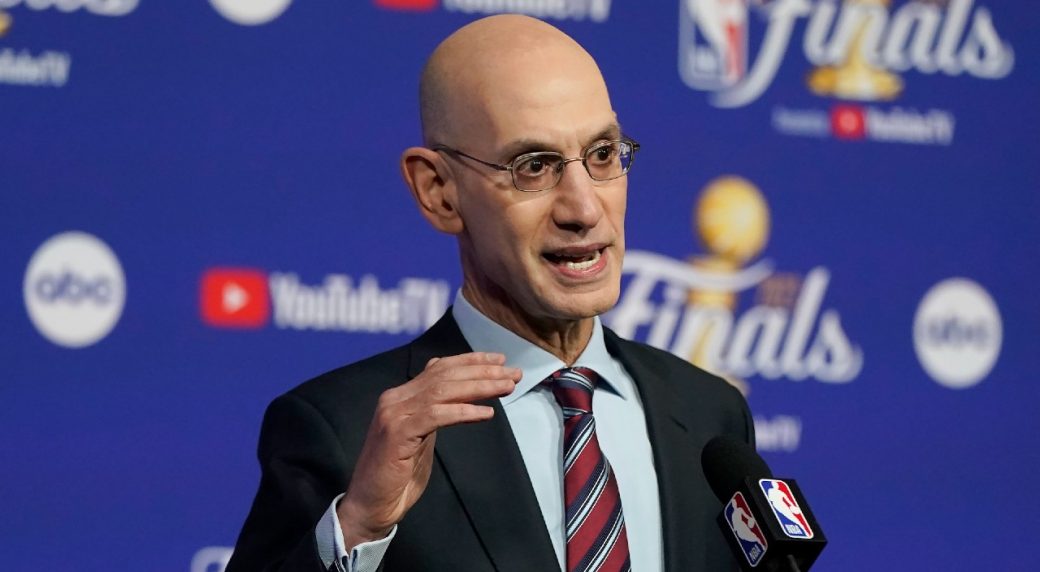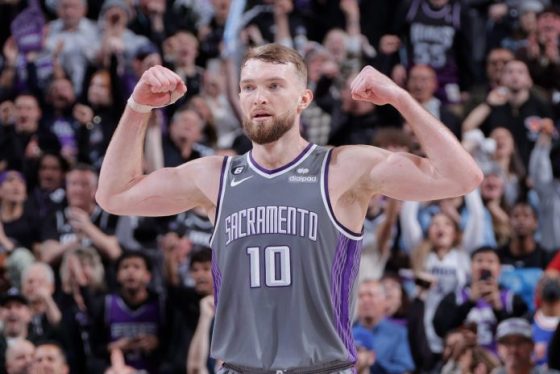Derrick White is the best version of Derrick White. So how does he get better?
White occupies an interesting place in the NBA biosphere. He has blown through every ceiling bold enough to try to contain him, going from a solid backup point guard for an anonymous San Antonio Spurs team to a more-than-solid backup guard on the Boston Celtics to a starter, eventually becoming an utterly irreplaceable keystone of an NBA champion making 118 million dollars.
For late-blooming non-lottery picks like White, this is about 20,000 times better than he probably could have hoped for. He is beloved in Boston, completely uncontroversial and plays complimentary basketball that never gets in the way and makes everyone better. How on earth could we improve this?
Well, if you cut through all the birthday cake and confetti, White is still probably the fifth most important player on the Celtics. He is a crafty but sometimes limited offensive player who relies on consistent three-point shooting to stay on the floor, and must outwork and out think his opponents to overcome often-daunting physical matchups. But he’s managed to do all that with remarkable consistency, and he basically never misses games.
Complacency is thus White’s biggest challenge for the 2024-25 season. The Celtics will have to get better if they want to win back-to-back championships, and White is one of the players with enough room to grow where it might actually make a difference. So what could he add?
Photo by Nathaniel S. Butler/NBAE via Getty Images
While not exactly the peak of basketball analysis, White could do with an expanded “bag,” as his offensive game is limited to the big three of role player moves: straight line drives, three pointers, and off-ball cuts. That’s not a problem, but a guard of his size — he’s a legit 6’4” — could do with develop a post game against smaller matchups, something both Marcus Smart and Jrue Holiday have developed to great success. Perhaps White could put on some weight and become a more physical defender and scorer rather than relying on his innate shot blocking ability.
White is also sneaky old, as while it doesn’t feel like he’s been on the Celtics for that long, he played four years in college and plenty in San Antonio. He’s already 30 years old, and the history of NBA guards going into their thirties is a story of size. The bigger, stockier guards can usually translate their lost burst into a grown man’s bully ball, using their craftiness and physical maturity to move the beanpole twenty-something around like sacks of potatoes. White will need to figure that out sooner rather than later if he wants to improve.
White could also perhaps become a more creative passer, as while he does well to keep the ball moving rather than dribbling the air out of it like his predecessor Dennis Schröder, he is still a “see it-throw it” passer, not necessarily seeing the floor as profoundly as Jayson Tatum does. Holiday has never been a chief facilitator, and unless the Celtics want to really advance the Point Tatum agenda, White could become the team’s primary table-setter if he wants to be.
White’s biggest strength has been his availability, which could prove even deadlier than usual if White can become a topflight offensive player in this league. He isn’t lacking any physical tools, and has plenty of burst and size. The number of opportunities to fully run the offense has been the main limiter to his improvement, but we saw the Celtics go with several iterations of “Derrick White and the Bench Squad” lineups last regular season. That is something they should do more of, even if it is just a lab experiment.
White has been everything the Celtics wanted him to be and so much more. But if they want to push their already-lofty limits, White is going to need to be even cooler, and he absolutely can be. And I’m sure we’d all love to see that.





